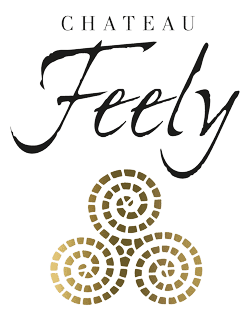POD 2: What is Organic?
What is organic farming and organic wine?
- Organic farming means no chemical fertilisers, herbicides, systemic fungicides or systemic insecticides. They are all strictly forbidden.
- Organic wine is wine made from grapes farmed organically and made into wine following strict rules that include lower sulfites than conventional wine.
Chateau Feely is fully cerified organic with Ecocert since 2008 and biodynamic with Demeter since 2010.
These elements are covered in more depth in POD 5 organic winegrowing, POD 6 biodynamic winegrowing and POD 7 organic, biodynamic and natural winemaking. But first, page down for the important concept of ‘terroir’ we love so much in France and then POD 3 Why choose organic?’.
Terroir
Terroir: taste of place not someone’s dog
There are four key factors that create a wine’s character and make up the French concept of ‘terroir’:
- Soil – Feely farm is on limestone mother-rock, with flintstone and clay. Each Feely wine is made from a small block with specific characteristics unique to this place. The limestone offers a minerality, almost saltiness, and the flint-stone offers smokiness
- Grape variety or type – Feely vineyard has sauvignon blanc and sémillon for whites and merlot and cabernet sauvignon for reds and rosés
- Climate or microclimate – Feely farm is in a ‘moderate’ climate with different microclimates depending on the slope; what is nearby for example, trees or water; the soil and air movement
- Man is also part of terroir- what we do affects our environment and the taste of our wines
Limestone: foundation for great wine
Like St Emilion village, Saussignac village, where Chateau Feely is located, is on a limestone plateau above the Dordogne valley. Limestone forms the foundation of many of the greatest wines in the world. It is porous so it allows water to drain away – a good thing since vines don’t like wet feet. It also allows the vines to bring water up by capillarity when they need it. Chateau Feely was the quarry of the local area. All the stone in the farm house and barns is from here so when you look at the buildings you are looking at what the vines are growing in.
Taste and life at the deep rock level
Why do we ‘taste’ terroir and why we can taste ‘minerality’? Claude Bourgignon, a highly regarded soil scientist in France, explains that there is insect and bacterial life in the soil and even at the rock level. Some critters eat rocks for a living and then excrete the result making rocks available as soluble minerals to plants. If you farm chemically you kill these critters. These critters, in a healthy biodynamic soil, create a benefit that would take hundreds of man hours of work per hectare if we did it ourselves. We see the improvement in the taste of our wines and in the vineyard health every year.
Conclusion: organic and terroir
Conclusion organic and terroir
Roots of organically farmed vines go deeper than chemically farmed vines. The short term gain of industrial agriculture and the associated low prices don’t include the long term cost of damage to our food supply and the environment. This is a part of why organic, the next section in our trail POD 3 – Why choose organic wine?
Go to the start of this online organic biodynamic trail. See our blog flow on why organic for the latest information on this important subject. Come and learn more about organic farming with a visit to Chateau Feely in South West France ; stay with us or do a multi day course with our sister site French Wine Adventures or multi day tour or a multi day walking tour.
You can read the full story of Feely farm adventure in Caro’s books: Grape Expectations, Saving our Skins, Vineyard Confessions and Cultivating Change
Join our mailing list to receive our seasonal newsletter, events, wine pairing, recipes and more info on this topic at the bottom right of this page.








